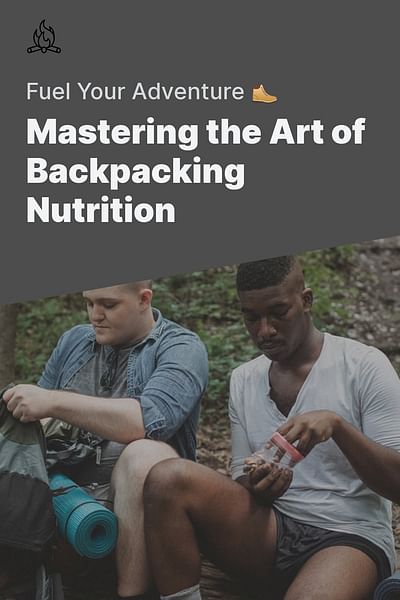Kathryn is a seasoned wildlife biologist with a passion for camping. She possesses extensive knowledge about food storage in territories frequented by bears and loves imparting her practical advice on maintaining safety for both humans and bears. Kathryn is also celebrated for her innovation in weaving wild edibles into camping cuisine.
Caloric Needs:
The amount of food you need while hiking depends on several factors, including your body weight, metabolism, and the intensity and duration of your hike. On average, hikers burn around 300-600 calories per hour, so it's important to replenish those calories to keep going strong. As a general rule of thumb, aim for 2,500-4,500 calories per day while hiking, depending on your individual needs and the difficulty of your hike.
Food Weight:
Weight is a crucial consideration when backpacking, as you'll be carrying all your supplies on your back. Lightweight, high-calorie foods are your best bet. Look for dehydrated meals, energy bars, nuts, and dried fruits, which provide a good balance of nutrients and are easy to pack. Aim for a weight of 1.5-2 pounds of food per day, including snacks and meals.
Meal Planning:
Planning your meals in advance can help ensure you have enough food for your hiking adventure. Consider the duration of your hike and the number of meals you'll need. For example, if you're planning a three-day hike, you'll need breakfast, lunch, dinner, and snacks for each day. Plan your meals to include a mix of carbohydrates, protein, and healthy fats to keep you satisfied and energized.
Snacks:
Snacks are essential for keeping your energy levels up throughout the day. Pack a variety of lightweight, high-energy snacks such as trail mix, energy bars, jerky, and dried fruit. These snacks are easy to eat on the go and provide a quick boost of energy when you need it most. Check out our article on the best energy foods for hiking for more snack ideas.
Hydration:
Don't forget to factor in hydration when planning your food intake. Staying well-hydrated is crucial for maintaining energy levels and preventing dehydration. Carry a water bottle or hydration bladder and drink regularly throughout the day. Aim for at least 2-3 liters of water per day, depending on the temperature and intensity of your hike.
Considerations:
Remember that everyone's nutritional needs are different, so it's important to listen to your body and adjust your food intake accordingly. If you're hiking at high altitudes or in extreme weather conditions, you may need to increase your calorie intake. Pay attention to how your body feels and make adjustments as needed.
In conclusion, the amount of food you should bring per day while hiking depends on factors such as your caloric needs, food weight, meal planning, snacks, and hydration. Aim for 2,500-4,500 calories per day, 1.5-2 pounds of food per day, and include a mix of carbohydrates, protein, and healthy fats. Don't forget to stay hydrated and listen to your body's needs. For more tips on meal planning and food safety while hiking, you can read our articles on efficient camping meal planning strategies and camping food safety tips. Happy hiking!















